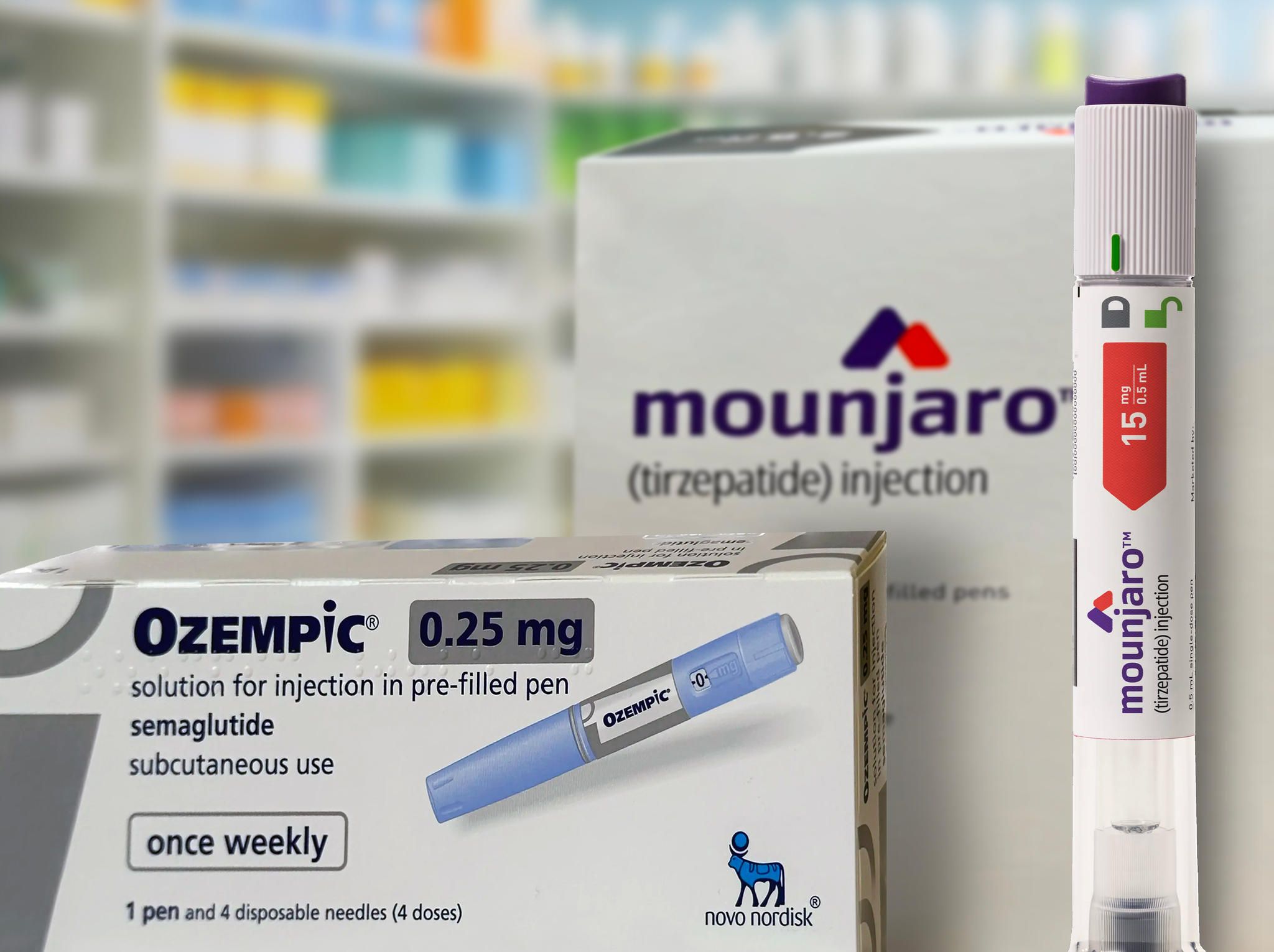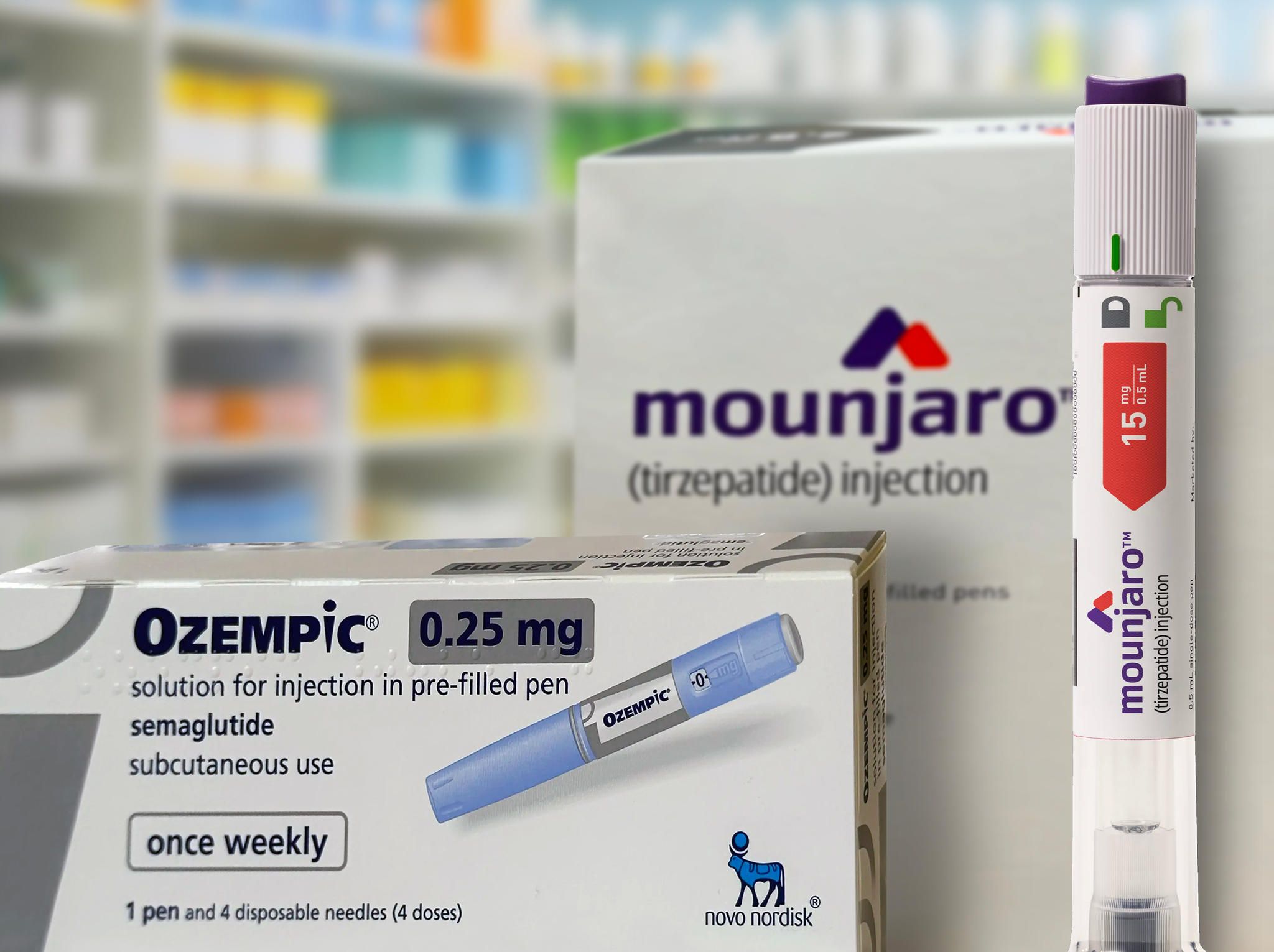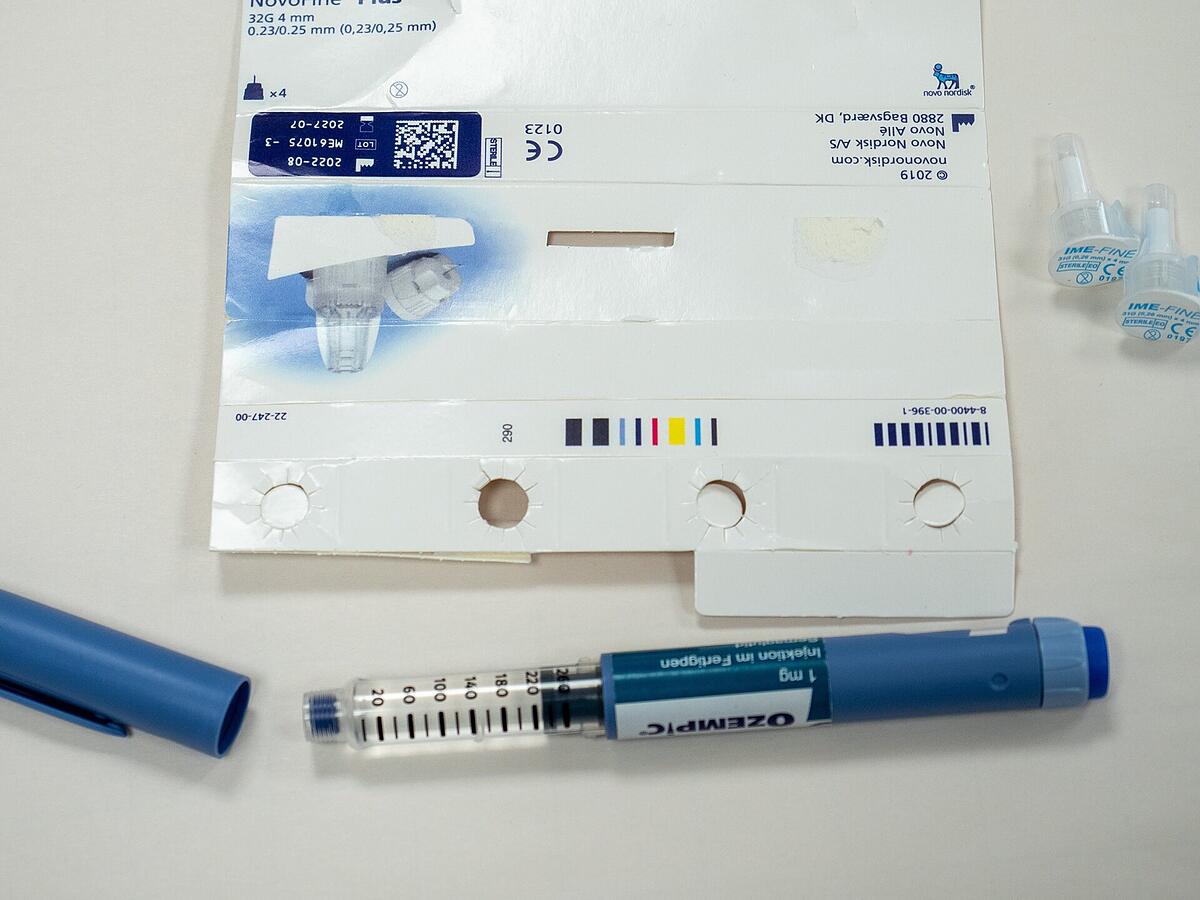
Navigating the Complexities of Diabetes Medication and Weight Management A Comprehensive Guide to Ozempic, Oatmeal, and Beyond
Diabetes and obesity remain among the most pressing health concerns worldwide, impacting millions of lives and creating a burden on healthcare systems. The treatment landscape for these chronic conditions is continuously evolving, driven by innovative research and development in diabetes medications. Among the newer treatments making waves is Ozempic (semaglutide), a drug that not only helps manage blood sugar levels but also shows promise in aiding weight loss. This comprehensive guide delves into the complexities of diabetes medications, particularly focusing on Ozempic’s role, the importance of dietary choices like oatmeal, and how combining medication with lifestyle changes can lead to more effective management of diabetes.
Diabetes Medications: A Comprehensive Guide

Diabetes medications are essential tools in the management of this chronic condition. They function by lowering blood glucose levels through various mechanisms, each tailored to a specific aspect of diabetes pathology. Effective management often requires a combination of different classes of medications, along with lifestyle modifications. Understanding the spectrum of available medications allows individuals to make informed decisions about their treatment plans.
Types of Diabetes Medications
There are several categories of diabetes medications, each designed to target different aspects of the disease.
- Insulin: As a critical hormone for blood sugar regulation, insulin therapy is foundational in managing both type 1 and advanced type 2 diabetes. It helps lower blood glucose levels by facilitating glucose absorption into cells.
- Metformin: Often the first-line treatment for type 2 diabetes, metformin works primarily by decreasing hepatic glucose production and increasing insulin sensitivity. It has been shown to improve glycemic control and even promote modest weight loss.
- GLP-1 Receptor Agonists: This class includes Ozempic and mimics endogenous GLP-1, leading to increased insulin release, decreased glucagon secretion, and slowed gastric emptying. Many patients also experience weight loss as an added benefit.
- SGLT2 Inhibitors: These medications help lower blood sugar levels by preventing glucose reabsorption in the kidneys, leading to increased glucose excretion through urine. They have also demonstrated cardiovascular benefits.
- DPP-4 Inhibitors: By inhibiting the enzyme DPP-4, these drugs prolong the action of incretin hormones, which help regulate post-meal blood sugar levels. While they are generally well-tolerated, they tend to have a neutral effect on weight.
Considerations When Choosing Diabetes Medications
Choosing the right diabetes medication involves multiple factors that should be considered alongside clinical guidelines.
- Individual Health Profile: A person’s overall health condition, including the presence of comorbidities such as heart disease or hypertension, will significantly influence medication choices.
- Lifestyle Factors: Diet, exercise, and personal preferences play important roles in determining which medications may be the most effective. For example, a patient who struggles with adherence may benefit from medications that require less frequent dosing.
- Risk of Side Effects: Each medication comes with its own set of potential side effects, ranging from gastrointestinal disturbances to risk of hypoglycemia. It is crucial for patients to understand these risks when considering their options.
The Importance of Patient Education
Comprehensive education about diabetes medications is vital for patients to engage actively in their treatment. When patients understand how medications work, why they’re prescribed, and the expected outcomes, they become more empowered to adhere to their regimens. Educational resources, support groups, and open communication with healthcare providers can help demystify diabetes management and foster a collaborative approach to health.
Weight Loss Medications: Exploring Options and Considerations

Weight management is a significant aspect of diabetes care, especially for those diagnosed with type 2 diabetes. Excess weight can exacerbate insulin resistance and increase the risk of complications. Therefore, exploring the intersection of diabetes medications and weight loss strategies becomes paramount for effective management.
Understanding Obesity and Its Link to Diabetes
Obesity is defined as excess body fat that can negatively impact health. It is a complex interplay of genetic, behavioral, and environmental factors. The relationship between obesity and diabetes is well-established; excess body fat can impair insulin sensitivity, leading to higher blood sugar levels.
- Inflammation and Insulin Resistance: Adipose tissue contributes to chronic low-grade inflammation, which plays a pivotal role in the development of insulin resistance—a hallmark of type 2 diabetes.
- Fat Distribution Matters: The location of body fat also influences metabolic health. Abdominal fat, in particular, is linked to greater insulin resistance, while subcutaneous fat may have a lesser impact.
- Psychological Aspects: Living with obesity and diabetes can lead to feelings of frustration and hopelessness, complicating efforts for weight loss. Understanding the psychological implications can help tailor supportive interventions.
Available Weight Loss Medications
Several medications can aid weight loss for individuals struggling with obesity, particularly those with diabetes.
- Ozempic (Semaglutide): As mentioned earlier, Ozempic not only helps manage blood sugar but has also been observed to promote significant weight loss in clinical trials. Its ability to enhance satiety while reducing appetite is key to its effectiveness.
- Phentermine-topiramate (Qsymia): This combination medication suppresses appetite and increases feelings of fullness. It is typically prescribed for short-term use but has shown promising results in long-term studies.
- Liraglutide (Saxenda): Another GLP-1 receptor agonist, Saxenda is specifically approved for weight management. It operates similarly to Ozempic, helping reduce calorie intake.
- Bupropion-naltrexone (Contrave): This combination medication targets the central nervous system to influence hunger and cravings. It is suitable for individuals with a higher BMI looking for assistance in weight loss.
Considerations When Using Weight Loss Medications
While weight loss medications can be beneficial, they are not suitable for everyone, and certain considerations must be factored in:
- Short-term vs. Long-term Use: Most weight-loss medications are intended for short-term therapy, and their long-term efficacy and safety need further investigation.
- Side Effects and Contraindications: Patients should always discuss potential side effects and contraindications with their healthcare provider before starting any new medication.
- Realistic Expectations: While medications can aid in weight loss, they should be part of a broader lifestyle change that includes diet and exercise. Setting realistic goals and understanding that weight loss may be gradual can lead to more sustainable outcomes.
Ozempic Dosage: Understanding the Right Amount for You

Determining the appropriate dosage of Ozempic is crucial for optimizing its effects while minimizing potential side effects. Since every individual responds differently to medications based on various factors, a personalized approach is necessary.
Dosage Guidelines and Administration
Ozempic is administered via subcutaneous injection, typically once a week. The initial dose is usually low to allow the body to adjust to the medication, with increments made based on individual tolerance and response.
- Starting Dose: Generally, the starting dose is 0.25 mg once weekly for four weeks. This regimen allows the body to acclimate to the medication and reduces the likelihood of gastrointestinal side effects.
- Maintenance Dose: After the initial period, the dosage may be increased to 0.5 mg or 1 mg weekly, depending on the individual’s blood sugar levels and tolerability.
- Administration Tips: Proper administration techniques are important to ensure the drug’s efficacy. Patients should follow their healthcare provider’s guidance on injection sites, rotation, and disposal of needles.
Monitoring Blood Sugar Levels
Regular monitoring of blood sugar levels is essential for individuals using Ozempic.
- Glycemic Control: Keeping track of blood glucose readings can help assess the medication’s effectiveness and inform any necessary adjustments to the treatment plan.
- Understanding Fluctuations: It’s not uncommon for blood sugar levels to fluctuate, especially during periods of stress or illness. Patients should learn to recognize these patterns and communicate them with their healthcare team.
Role of Healthcare Professionals
Healthcare professionals play a vital role in determining the appropriate dosage of Ozempic.
- Collaborative Decision-Making: Regular consultations allow for ongoing discussions about medication effectiveness, side effects, and any necessary adjustments.
- Education and Support: Providers can offer educational resources and support for maintaining a healthy lifestyle alongside medication, empowering patients to take charge of their diabetes management.
Ozempic and Oatmeal: A Look at Potential Interactions
As individuals navigate diabetes management, it is essential to consider food interactions with medications. One common food choice that appears frequently in discussions around diabetes is oatmeal. Understanding how Ozempic and oatmeal interact may enhance overall diabetes management strategies.
The Nutritional Benefits of Oatmeal
Oatmeal is widely regarded as a wholesome food option due to its rich nutritional profile.
- Soluble Fiber: Oats contain beta-glucan, a soluble fiber that forms a gel-like substance in the digestive tract. This fiber slows down carbohydrate absorption, leading to more stable blood sugar levels.
- Low Glycemic Index: Oatmeal generally boasts a low glycemic index (GI), meaning it causes a slower and steadier rise in blood sugar compared to high-GI foods.
- Satiety and Weight Management: The fiber content in oats promotes feelings of fullness, which may assist in weight management efforts when combined with a balanced diet.
How Oatmeal Interacts with Ozempic
The combination of Ozempic and oatmeal can reinforce positive outcomes in diabetes management.
- Improved Glycemic Control: By stabilizing blood sugar levels, oatmeal may complement the action of Ozempic, leading to enhanced glycemic control over time.
- Weight Management Synergy: Incorporating oatmeal into meals may help maintain satiety and prevent overeating, further supporting the weight loss effects associated with Ozempic.
Best Practices for Combining Oatmeal with Ozempic
To maximize the benefits of both Ozempic and oatmeal, individuals may consider the following best practices:
- Choose Whole Grain Options: Opt for steel-cut or rolled oats rather than instant varieties, which tend to have a higher glycemic index.
- Add Protein Sources: To enhance satiety and slow down sugar absorption, try adding nuts, seeds, or Greek yogurt to your oatmeal.
- Monitor Blood Sugar Levels: Keep an eye on blood sugar levels after consuming oatmeal to ensure it remains within the target range. Adjust portion sizes as needed.
Managing Diabetes with Medications: A Patient’s Perspective
Navigating the world of diabetes medications can be overwhelming. From understanding the intricacies of medications to important lifestyle changes, patients hold unique insights into their experiences that can shape the course of diabetes management.
Personal Experiences with Diabetes Medications
Living with diabetes often means becoming intimately familiar with the medications prescribed.
- Trial and Error: Many individuals report going through multiple medications before finding the right fit—one that effectively manages blood sugar while minimizing side effects.
- Emotional Impact: The daily routine of taking medication can evoke a range of emotions, from empowerment in gaining control over one’s health to frustration over ongoing challenges.
The Role of Lifestyle Changes
Medication is just one piece of the diabetes management puzzle.
- Nutrition Choices: Patients often emphasize the importance of meal planning and selecting nutrient-dense options to support their medication regimen. Integrating foods like oatmeal into meals can create a sense of balance and stability.
- Physical Activity: Regular exercise is another cornerstone of diabetes management. Whether it’s going for a walk or participating in structured fitness classes, staying active supports both physical and mental health.
Building a Support System
A robust support system is essential for individuals living with diabetes.
- Engaging with Healthcare Teams: Open communication with healthcare providers fosters a collaborative atmosphere where questions can be addressed, and treatment plans adjusted.
- Peer Support Groups: Many individuals find solace in connecting with others facing similar challenges. Sharing experiences and strategies can empower patients and reduce feelings of isolation.
The Science Behind Weight Loss Medications: How They Work
Weight loss medications offer a pharmacological approach to managing obesity. Understanding how these medications function is essential for patients seeking to incorporate them into a comprehensive treatment plan.
Mechanisms of Action
Each weight loss medication operates through distinct mechanisms to influence appetite and energy expenditure.
- Appetite Suppression: Many weight loss medications target receptors in the brain responsible for regulating hunger signals. By altering the neurochemical pathways, these medications can reduce cravings and help control portions.
- Increased Energy Expenditure: Some medications may promote thermogenesis, leading to increased calorie burning even at rest. This added energy expenditure can contribute to weight loss over time.
Clinical Evidence Supporting Efficacy
Clinical studies play a critical role in assessing the effectiveness of weight loss medications.
- Trial Outcomes: Randomized controlled trials involving participants using weight loss medications often demonstrate significant reductions in body weight compared to placebo groups.
- Long-term Studies: Ongoing research continues to explore the durability of weight loss achieved with medications and whether patients can sustain their results after discontinuation.
Risks and Benefits of Weight Loss Medications
While weight loss medications can provide valuable assistance, they are not without risks.
- Potential Side Effects: Patients may experience side effects such as nausea, diarrhea, or increased heart rate, which could deter continued use. Monitoring and adjusting dosages can help alleviate some of these symptoms.
- Individual Response Variability: Not all patients respond similarly to weight loss medications. Personalized approaches are essential to identify which medication aligns with an individual’s goals and circumstances.
Ozempic Side Effects: What to Expect and How to Manage Them
Like any medication, Ozempic comes with its own set of potential side effects. Understanding what to expect can help individuals proactively manage their treatment journey.
Common Side Effects
Patients new to Ozempic should be aware of common side effects experienced during initial treatment phases:
- Gastrointestinal Disturbances: Nausea, vomiting, and diarrhea are prevalent concerns, particularly during the first few doses. Gradually escalating the dosage can help mitigate these issues.
- Injection Site Reactions: Some individuals might experience redness or swelling at the injection site. Practicing proper injection techniques can minimize discomfort.
Serious Side Effects
Though rare, certain serious side effects warrant immediate medical attention:
- Pancreatitis: Symptoms such as severe abdominal pain, nausea, and vomiting may signal pancreatitis. Patients should seek prompt medical advice if they develop these symptoms.
- Thyroid Tumors: Rodent studies have indicated a potential risk of thyroid tumors with GLP-1 receptor agonists. Although the relevance to humans is still uncertain, individuals with a family history of medullary thyroid carcinoma should discuss their risks with healthcare providers.
Managing Side Effects Effectively
Proactive management strategies can enhance the treatment experience for those using Ozempic:
- Starting Slowly: Initiating treatment at a lower dose and gradually increasing can lessen the chance of experiencing gastrointestinal side effects.
- Staying Hydrated: To combat possible dehydration resulting from gastrointestinal symptoms, ensuring adequate hydration is essential.
- Open Communication: Maintaining dialogue with healthcare professionals regarding side effects allows for timely adjustments and reassurance throughout the treatment process.
Oatmeal for Diabetes Management: Benefits and Considerations
In the quest for effective diabetes management, oatmeal emerges as a nutritious ally. Its role extends beyond mere sustenance, contributing to stable blood sugar levels and overall well-being.
Nutritional Profile of Oatmeal
Oatmeal serves as an excellent source of essential nutrients beneficial for individuals with diabetes.
- Fiber-Rich Content: With its abundant soluble fiber, oatmeal aids digestion and regulates blood sugar levels. This characteristic makes it a wise choice for breakfast or snacks.
- Vitamins and Minerals: Oats are rich in vitamins B1, B5, and minerals such as magnesium and iron. These nutrients play crucial roles in metabolism and energy production.
Practical Tips for Incorporating Oatmeal
Maximizing the benefits of oatmeal requires thoughtful integration into one’s diet.
- Experiment with Varieties: Steel-cut and rolled oats are preferable to their instant counterparts, which can be higher in sugars. Exploring different preparations can keep breakfast exciting and enjoyable.
- Create Balanced Meals: Pairing oatmeal with protein sources or healthy fats can enhance satiety, promoting sustained energy levels throughout the morning.
Monitoring Blood Sugar Responses
For individuals managing diabetes, being attuned to how foods affect blood sugar levels is essential.
- Conduct Self-Monitoring: Encourage patients to observe their blood sugar levels after consuming oatmeal to identify any significant fluctuations.
- Adjust Portions Accordingly: Depending on individual responses, portion sizes may need modification to maintain optimal blood sugar control.
Combining Medications for Diabetes and Weight Loss: A Holistic Approach
Successfully managing diabetes and weight loss often necessitates a multi-faceted approach that integrates medication, nutrition, and lifestyle changes.
The Power of Combination Therapy
Utilizing multiple medications to address both diabetes and weight loss can yield improved outcomes.
- Synergistic Effects: Combining medications, such as GLP-1 receptor agonists with metformin, may enhance glycemic control while supporting weight loss. This synergy can produce a more balanced approach to diabetes management.
- Tailored Treatment Plans: Every patient is unique, requiring a personalized approach that considers health status, preferences, and treatment goals.
Emphasizing Lifestyle Interventions
Incorporating lifestyle changes into diabetes management and weight loss efforts amplifies the benefits of medications.
- Balanced Diet: Focusing on whole foods, including fruits, vegetables, lean proteins, and whole grains, supports better glycemic control and weight management.
- Regular Physical Activity: Engaging in regular exercise enhances insulin sensitivity and aids in weight maintenance. It doesn’t have to be intense—simple activities like walking, dancing, or gardening can add up.
Continuous Monitoring and Adjustment
Ongoing assessment of treatment efficacy and lifestyle changes is vital for long-term success.
- Regular Follow-Ups: Scheduling periodic consultations with healthcare professionals facilitates open discussions about progress, adjustments, and potential barriers to success.
- Patient Empowerment: Encouraging individuals to track their food intake, physical activity, and blood sugar levels fosters accountability and empowers them to make informed decisions.
Navigating the World of Diabetes Medications: Tips for Informed Decision-Making
The landscape of diabetes medications can feel daunting, yet informed decision-making is key to successful management.
Research and Education
Equipping oneself with knowledge can significantly impact one’s treatment journey.
- Explore Reliable Resources: Investigate credible platforms that provide accurate information about diabetes medications. Websites maintained by diabetes associations or reputable health organizations can serve as valuable references.
- Engage in Conversations: Don’t hesitate to discuss medication options with healthcare providers, family members, or peers. Sharing experiences can uncover insights and provide reassurance.
Be Proactive in Treatment Discussions
Patients are encouraged to take an active role in their treatment discussions.
- Ask Questions: Being inquisitive about medication mechanisms, potential side effects, and alternative options demonstrates engagement and commitment to health.
- Share Concerns: If there are worries regarding medication effectiveness or side effects, addressing these concerns promptly can lead to timely adjustments in the treatment plan.
Utilizing Technology for Better Management
With advancements in technology, managing diabetes has become increasingly accessible.
- Mobile Apps: Many apps are available for tracking blood sugar levels, medication adherence, and food intake, offering an interactive way to manage diabetes.
- Telehealth Services: Virtual consultations with healthcare professionals enable patients to connect from the comfort of their homes, enhancing access to expert guidance.
Conclusion
Navigating the complexities of diabetes medications and weight management is a multifaceted endeavor that requires patience, education, and collaboration with healthcare professionals. Ozempic presents a promising option for managing both diabetes and weight loss, though it is essential to remember that it is part of a broader strategy that includes dietary choices like oatmeal and lifestyle modifications. By adopting a holistic approach, individuals can embrace a balanced and informed path toward achieving their health goals, ultimately leading to improved quality of life. As we journey through this ever-evolving landscape of diabetes management, continuous learning and collaboration remain key to unlocking the best possible outcomes.
You can always visit our shop ozempic pharma for all semaglutide products
All Categories
Recent Posts
Tags


